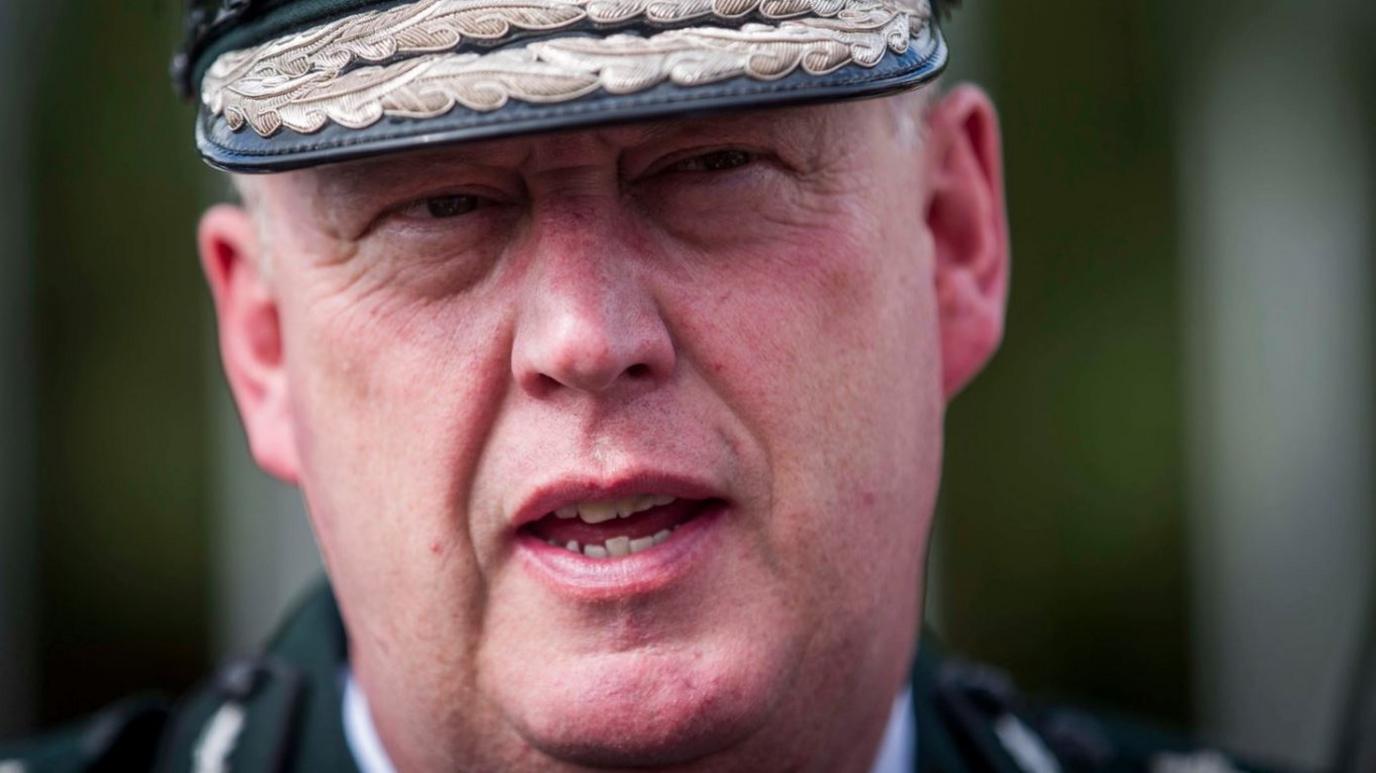New PSNI chief constable named as Simon Byrne
- Published
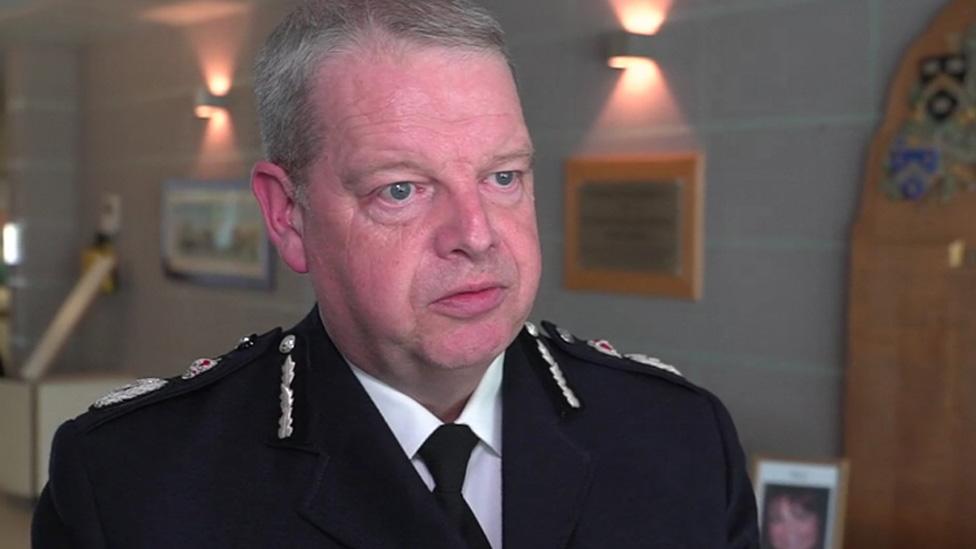
Until last year, Simon Byrne was chief constable of Cheshire Police.
Simon Byrne has been appointed as the new chief constable of the Police Service of Northern Ireland (PSNI).
Until last year, Mr Byrne was chief constable of Cheshire Police and has more than three decades of experience.
The new chief constable will take up his position some time after George Hamilton retires next month.
Last year, Mr Byrne was cleared of 74 misconduct allegations after being accused of bullying and humiliating staff between May 2014 and March 2017.
A panel last December said the misconduct case, which cost £350,000 in public funds, "could and should have been avoided". It found no allegations of misconduct were proved.
Mr Byrne was chosen by a panel of seven Northern Ireland Policing Board members.
Ann Connolly, the chair of the Policing Board, said Mr Byrne had alerted the board to the fact that he had been the subject of "unfounded allegations".
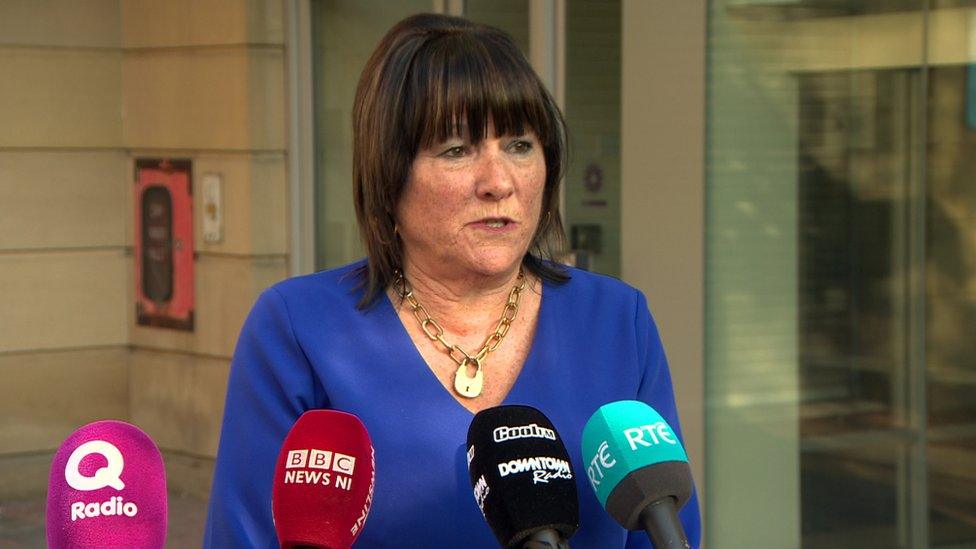
Ann Connolly said Mr Byrne brings a wealth of strategic and operational experience to the post
"He has been totally exonerated and the last time I looked that meant the person was innocent, so the board had absolutely no problem in appointing him," she said.
"Mr Byrne brings a wealth of strategic and operational experience to the post.
"He has had 36 years of experience, the last 12 years at chief officer level."

Analysis: Julian O'Neill, BBC News NI Home Affairs Correspondent
Simon Byrne appeared on few people's radar - "total shock" was the initial reaction of one policing insider.
He becomes the PSNI's fifth chief constable and the third time an English officer has landed the post.
For Mr Byrne, Northern Ireland represents a comeback.
A career spanning 35 years hit the buffers last year when his contract in Cheshire expired while he was suspended.
He was subsequently cleared of all misconduct allegations.
At the time he said he felt "totally exonerated" and now has one of the tops jobs in UK policing to underline it.

Interviews were held on Thursday and Friday, with four men in the running for the £207,000-a-year job.
Mr Byrne began his career as a Met constable in 1982 and became an assistant chief constable at Merseyside in 2006.
He was deputy chief constable of Greater Manchester Police from 2009 to 2011 and assistant commissioner for territorial policing in the Metropolitan Police from 2011 to 2014, before becoming chief of Cheshire Police.
DUP board member Mervyn Storey said the appointment was unanimous, adding: "We look forward to working with the new chief constable as he takes forward his vision for policing in Northern Ireland."
Sinn Féin's Michelle O'Neill said policing with the community should be a priority for Mr Byrne and said "action is required to rebuild and redevelop public confidence in policing".
The UUP's Alan Chambers said the new chief constable was taking over at a time of unprecedented pressure but he was "confident that Simon Byrne will rise to the challenge".
Mark Lindsay, chairman of the Police Federation, said: "He has considerable operational experience and I wish him well in this new and very demanding role."
Friday's announcement followed Northern Ireland Secretary Karen Bradley's approval of the appointment in the absence of a justice minister at Stormont.
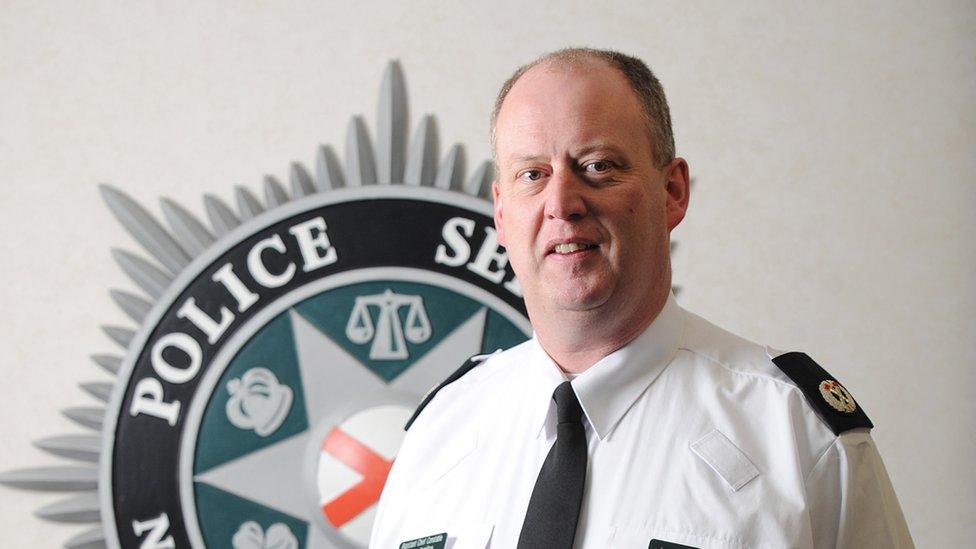
George Hamilton, the current chief constable, retires next month
Independent recruitment specialists had been hired to oversee the process.
The other candidates for the top policing job were Steve Martin and Mark Hamilton, both PSNI officers and Jon Boutcher the head of Bedfordshire Police.
Only four of the five main parties were represented on the Policing Board panel.
The SDLP MLA Dolores Kelly withdrew for personal reasons.
New oversight arrangements were built into the recruitment process after claims that Sinn Féin president Mary Lou McDonald had compromised the competition.
In February, she voiced opposition to the chief constable being replaced from within the PSNI.
- Published7 May 2019
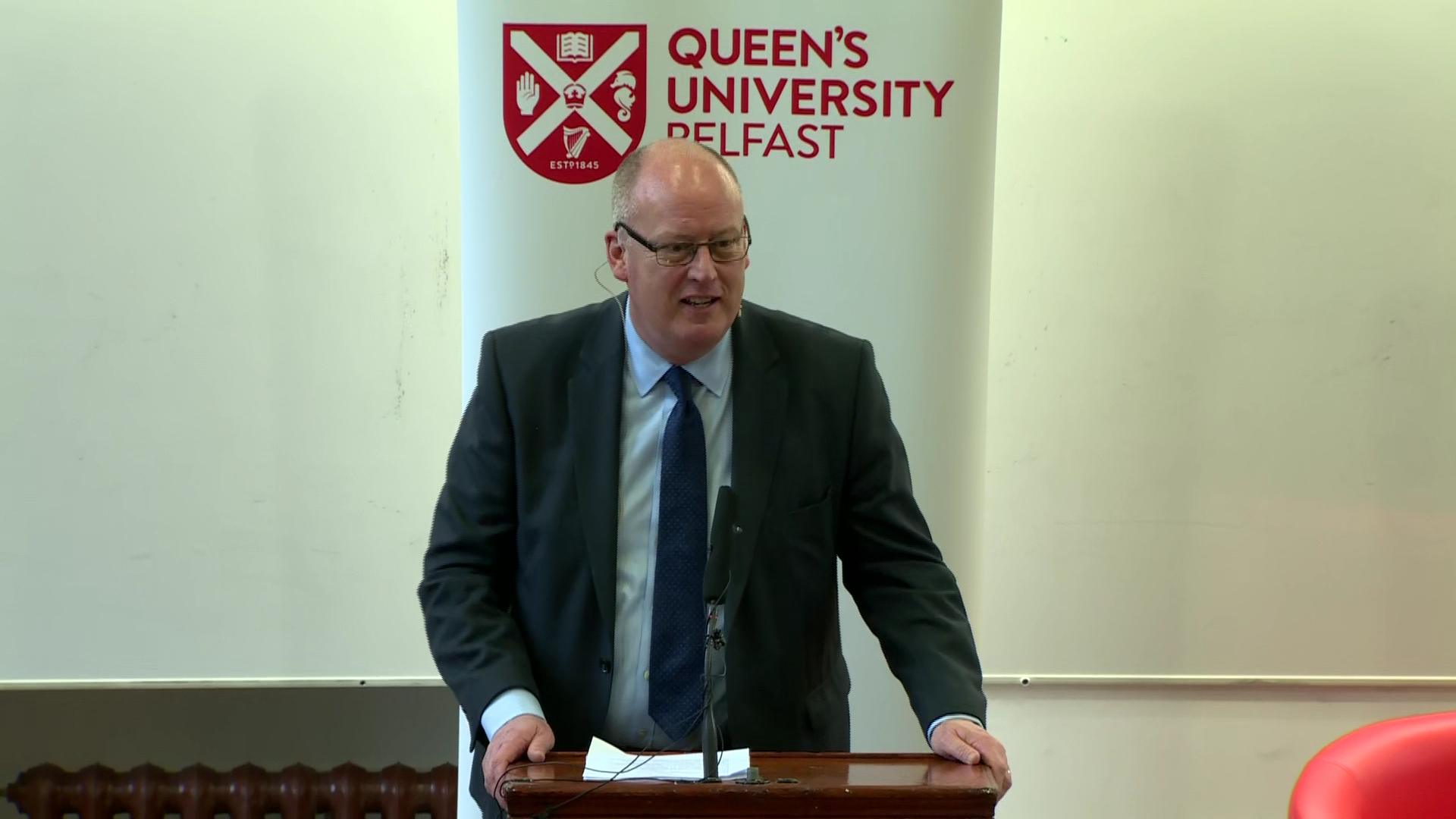
- Published28 January 2019
